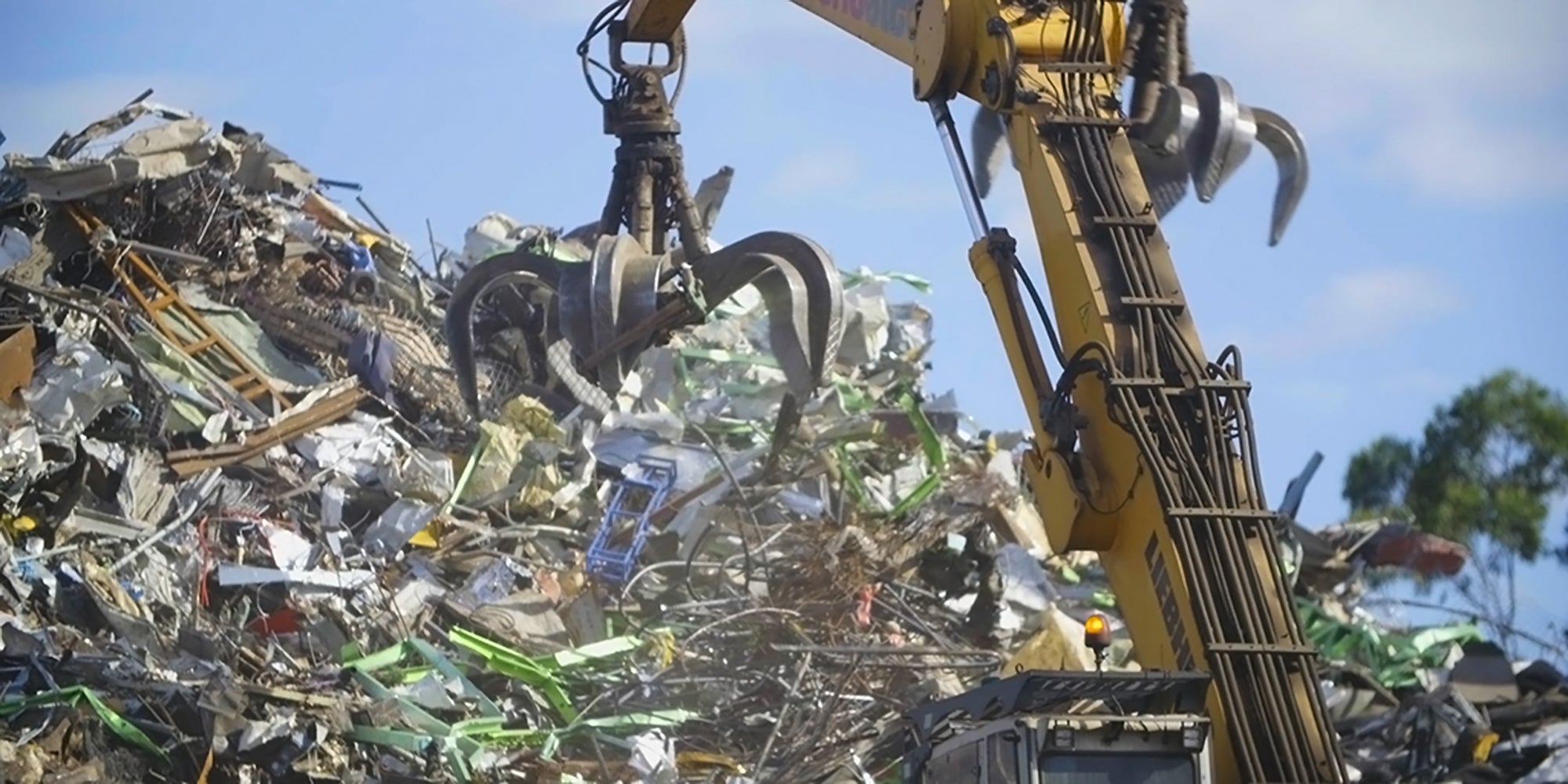Home / Our Stories /
Building a more sustainable steel industry starts with scrap metal
13 November 2020

Steel is essential in our modern world.
From the buildings and homes we work and live in, to the roads, bridges and railways we travel across. Steel products help protect our farmers’ livestock, threatened native species, and frame our world-leading sports fields and stadiums where we enjoy the sporting pursuits and artistic talents of the world’s best athletes, sports teams, bands and musicians.
It’s also infinitely recyclable, a fact often forgotten, given steel’s carbon-based history and image as a heavy industry.
Fridges, cars, buses, appliances, tools and household hardware routinely find their way to our national network of 26 recycling centres. The scrap metal is processed to be repurposed, re-used, and re-manufactured in new products, removing waste from landfill, contributing to Australia’s circular economy and importantly, reducing the carbon emissions that come with the production of virgin steel.
Through our recycling business, we remelt and re-use around 1.4 million tonnes of scrap each year, turning it into prime steel production for infrastructure, construction and building through our Electric Arc Furnaces at steel mills in Sydney and Melbourne.
To put this into perspective, for every tonne of recycled steel scrap, we save 1.5 tonnes of carbon, 1.4 tonnes of iron ore, 740 kilograms of coal and 120 kilograms of limestone. The role scrap metal can play in saving natural resources is clear.
As a business within LIBERTY Steel Group, InfraBuild is committed to expanding and building upon our industry-recognised GREENSTEEL approach and investing further in technology to realise our ambition to be carbon neutral by 2030 (CN30).
GREENSTEEL aims to recycle and upcycle the growing mountain of scrap steel, using Electric Arc Furnaces which produce only one-third of the emissions compared with primary steel production through Blast Furnaces. When the process is combined with renewable power, emissions can be reduced to nearly zero. This is at the heart of our group’s CN30 ambition, which also includes exploring new technologies including the use of green hydrogen in carbon-free steelmaking.
But it starts with a focus on recycling, and with global demand for steel expected to double by 2050, the role metals recycling plays – particularly in the domestic steel industry – will only increase in importance. This year’s National Recycling Week central theme of recovery brings that sharply into focus.
Because we know in the months and years ahead, Government will look to large-scale construction and infrastructure initiatives as a lever to repair the economy, get people back in jobs and stimulate consumer activity. This will require foundation materials such as steel.
We’re clear in our plans to increase the volumes of scrap metal through our recycling centres so we can increase supply of domestically-produced, sustainable steel products to building and construction partners.
A thriving steel industry, based on a strong foundation of metals recycling, is not only good for the planet but for society and the economy overall. The good news is, we have an opportunity to do this even better in Australia.
Currently there remains a sizable volume of scrap metal that is exported for processing. Greater awareness of domestic metal recycling capabilities, along with incentives for operators to process scrap onshore, can further strengthen the metal recycling sector and in turn the local steel industry.
The industry employs more than 110,000 Australians, and we know it has a significant multiplier effect on jobs growth broadly. World Steel Association research has shown for every job created in the steel industry, another 8.1 indirect jobs are created.
We also know, from global research, that for every dollar of value added by work within the steel industry, a further $2.50 of value-added activity is supported throughout the supply chain. By increasing the volume of local scrap, the benefits flow through to increased local steel and more jobs in Australia.
The steel industry is clearly a significant driver of economic activity and job growth, and we’re working hard to make it cleaner and greener, through increased scrap recycling and investment in new technologies. Our commitment and leadership in this area, evidenced in our recent release of updated Environmental Product Declarations, that provide independently verified sustainability data on a range of our products, was recognised by the Infrastructure Sustainability Council of Australia and Green Building Council of Australia last month.
Whether you’re a business or home owner, by choosing to recycle your scrap metal locally, you’re supporting long-term sustainability and keeping Australians in jobs.
That’s a smart choice that, in these challenging times, we can all make.
Dak Patel is the LIBERTY Steel Group Regional President (Australia and USA) and CEO InfraBuild
Please contact us for any feedback or media enquiries about this content.
Subscribe to the
InfraBuild newsletter
Receive regular updates on news, case studies as well as the latest products and services.
